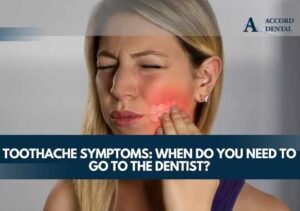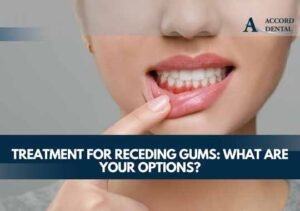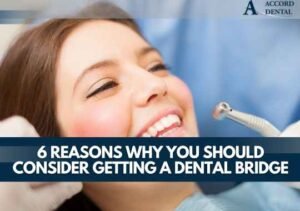Maintaining healthy gums is critical for your overall oral health and general well-being. Gums are not just the supporting structures for your teeth but also serve as protective barriers against harmful bacteria and trauma. Neglecting gum care can result in severe oral health issues, including gingivitis and periodontitis, and contribute to broader health complications. This in-depth guide will explore various strategies to keep your gums healthy, covering daily care routines, lifestyle changes, professional treatments, and more.
Why Gum Health is Important
Healthy gums are vital for maintaining a beautiful smile, but their importance goes far beyond aesthetics. They perform essential roles in oral health, serving as protectors of teeth and jawbones. Without proper care, gum diseases can escalate, affecting your ability to eat, speak, and smile with confidence. Understanding the importance of gum health is the first step toward taking preventative measures.
The Role of Gums in Oral Health
Gums play a multifaceted role in maintaining oral health:
- Support for Teeth: Gums provide a stable foundation for teeth, ensuring they stay securely in place.
- Barrier Against Bacteria: A tight seal formed by healthy gums prevents bacteria from entering the deeper tissues, reducing the risk of infection.
- Protecting Jawbones: The health of your gums is directly connected to the strength of the jawbones that support your teeth. Any gum disease can eventually lead to bone loss.
Recognizing the Signs of Unhealthy Gums
Gum issues often start subtly, making it crucial to recognize the early signs of trouble. Ignoring these symptoms can lead to advanced gum disease, requiring invasive treatments or even tooth replacement.
Common Symptoms of Unhealthy Gums
- Persistent Bad Breath: Chronic halitosis may indicate bacterial buildup in the gums.
- Bleeding Gums: Bleeding during brushing or flossing is often an early sign of gingivitis.
- Swelling and Tenderness: Inflamed or painful gums are indicators of underlying problems.
- Gum Recession and Loose Teeth: Gum recession exposes tooth roots, making teeth appear longer and feel less stable.
Common Gum Problems and Their Causes
Gum problems range from mild irritation to severe conditions that can jeopardize oral health. Understanding these conditions helps with early intervention and better prevention strategies.
Gingivitis: The Initial Stage
Gingivitis is the most common gum problem and marks the early stage of gum disease. Symptoms include redness, swelling, and bleeding gums. Poor oral hygiene, leading to plaque accumulation, is the primary cause. Fortunately, gingivitis is reversible with proper care.
Periodontitis: The Advanced Stage
If gingivitis is not treated, it can progress to periodontitis. This serious gum disease damages the soft tissue and bone supporting teeth, leading to loose teeth or even tooth loss. Key symptoms include the formation of gum pockets, chronic bad breath, and pus discharge.
Gum Recession
Gum recession occurs when the gum tissue pulls back, exposing the roots of the teeth. It can result from:
- Overzealous brushing with hard-bristled toothbrushes.
- Poor oral hygiene habits.
- Tobacco use, which weakens gum tissue.
- Genetic predisposition to gum issues.
Gum Abscess
A gum abscess is a painful swelling filled with pus, caused by bacterial infections. It often arises from untreated gum disease or injuries to the gum tissue. Immediate dental attention is required to address this issue effectively.
Daily Habits for Healthy Gums
Maintaining a consistent oral hygiene routine is the cornerstone of gum health. Simple, everyday actions can significantly reduce your risk of gum problems.
1. Brushing Techniques
Proper brushing is essential to remove plaque, a leading cause of gum disease. Follow these guidelines:
- Choose the Right Toothbrush: Use a soft-bristled brush to avoid damaging the gum tissue.
- Master the Technique: Hold your toothbrush at a 45-degree angle to the gumline and use gentle, circular motions.
- Frequency Matters: Brush twice daily for at least two minutes per session to ensure thorough cleaning.
2. Flossing for Comprehensive Cleaning
Flossing removes food particles and plaque from areas that toothbrushes cannot reach. To floss effectively:
- Use a long piece of floss, wrapping most around your middle fingers.
- Slide the floss gently between teeth, curving it along the gumline to clean effectively.
3. Antibacterial Mouthwash
Mouthwash complements brushing and flossing by reducing bacterial growth and preventing plaque buildup. Look for fluoride-based rinses to strengthen teeth and enhance gum protection.
4. Regular Toothbrush Replacement
Replace your toothbrush every three months or sooner if the bristles become frayed. A worn-out brush is less effective and can harbor bacteria, defeating its purpose.
Dietary Choices for Gum Health
What you eat significantly impacts the health of your gums. A balanced diet supplies the nutrients necessary for robust gum tissue and strong teeth.
Foods That Strengthen Gums
- Vitamin C-Rich Foods: Fruits like oranges, strawberries, and vegetables like bell peppers boost collagen production, essential for gum health.
- Calcium-Rich Foods: Dairy products such as milk, cheese, and yogurt help fortify teeth and underlying bones.
- Crunchy Vegetables: Carrots and celery stimulate saliva production, naturally cleaning teeth and gums.
Foods to Avoid
- Sugary Snacks: Feed harmful bacteria that can damage gums and teeth.
- Acidic Foods and Drinks: Erode enamel and irritate gum tissue.
- Sticky Candies: Linger on teeth, increasing the risk of decay and gum issues.
Professional Dental Care and Its Importance
Routine dental visits are indispensable for maintaining optimal gum health. Professional interventions can address issues that daily routines cannot.
Benefits of Regular Dental Checkups
- Tartar Removal: Plaque hardens into tartar, which cannot be removed by regular brushing.
- Early Detection: Dentists can spot gum disease in its early stages, preventing complications.
- Polished Teeth: Professional cleaning makes it harder for plaque to accumulate.
Deep Cleaning Procedures
For those with advanced gum problems, dentists may recommend scaling and root planing. This procedure cleans beneath the gum line, removing bacteria and tartar buildup.
The Link Between Gum Health and Overall Health
Gum health has far-reaching effects on the rest of the body. Research highlights its connection to several systemic conditions.
1. Heart Disease
Gum disease can increase inflammation levels in the body, contributing to arterial plaque buildup and raising the risk of heart disease.
2. Diabetes
Gum disease and diabetes have a bidirectional relationship. Poor gum health can worsen blood sugar control, while diabetes makes gums more susceptible to infections.
3. Pregnancy Complications
Pregnant women with gum disease face a higher risk of preterm births and low birth weights, making gum care essential during pregnancy.
Lifestyle Changes to Promote Gum Health
Adopting healthy habits can significantly improve gum health.
Quit Smoking
Smoking weakens the immune system, impairing the body’s ability to fight gum infections. It also slows healing and exacerbates gum recession.
Manage Stress
Stress reduces the body’s defenses against infections, including gum disease. Techniques like meditation, yoga, and regular exercise can help manage stress effectively.
Address Teeth Grinding
Grinding or clenching teeth can wear down enamel and irritate gums. If you grind your teeth, consider wearing a custom mouthguard at night.
Natural Remedies for Gum Care
For those interested in natural approaches, several remedies can complement traditional gum care routines.
Oil Pulling
Swishing coconut or sesame oil in the mouth for 10–15 minutes can reduce bacteria and prevent plaque buildup.
Aloe Vera
Aloe vera gel has anti-inflammatory properties and can soothe irritated gums when applied topically.
Turmeric Paste
Turmeric contains curcumin, known for its anti-inflammatory effects. Applying a turmeric paste to gums can reduce swelling and promote healing.
Conclusion
Healthy gums are the foundation of a confident smile and a healthy body. By maintaining a proper oral hygiene routine, making informed dietary choices, and visiting your dentist regularly, you can keep your gums in excellent condition. Additionally, adopting healthy lifestyle habits and exploring natural remedies can further enhance your gum health.
For expert dental care and guidance, consider visiting Accord Dental, a Dentist in Grafton, MA, where a team of professionals can provide comprehensive treatments to ensure your gums stay healthy and strong for life.





